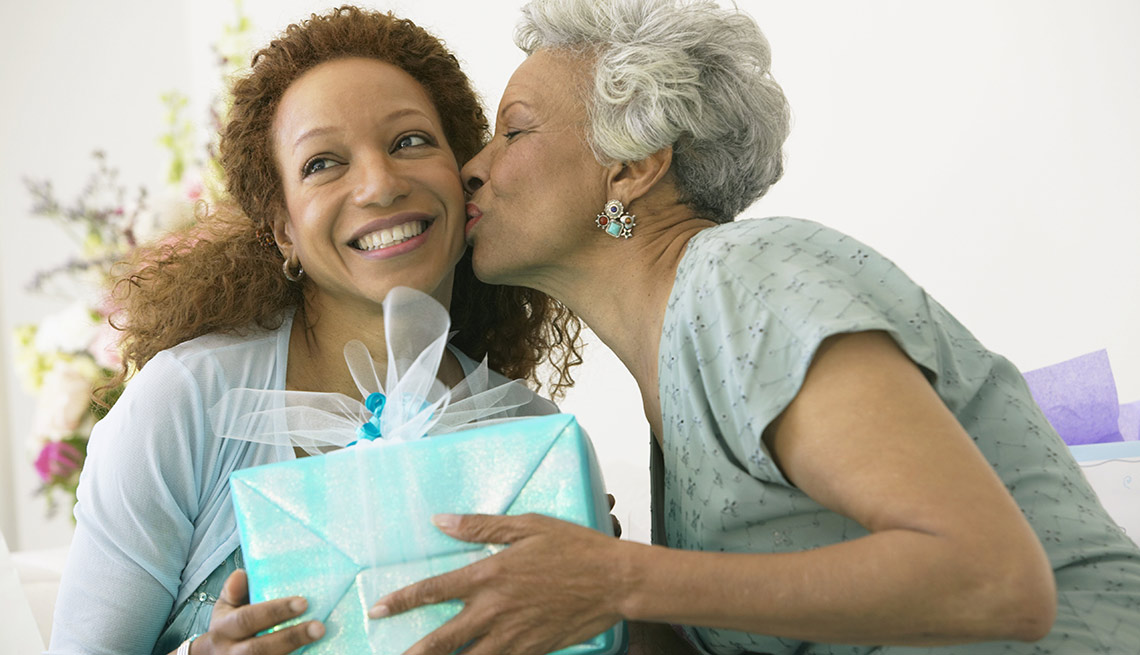AARP Hearing Center
Answering questions live on air is one of my favorite things to do as a media spokesperson. I usually hear from caregivers, but when I appeared recently on the AARP Live show on RFD-TV, one caller was the recipient of a family member's caregiving. Darlene from Iowa said she went to work one day, slipped and broke her hip. Now she feels guilty about receiving care from her daughter, who lives two hours away. My advice to Darlene? Ditch the guilt, and go for grateful.
I'm glad that Darlene contributed this important perspective. I often talk to family caregivers who say their job is much harder because their loved ones are resistant to care. This is usually because the care recipient doesn't see the need for care, doesn't want to lose independence, has cognitive impairment (such as dementia) or, like Darlene, feels guilty about needing help — they say they don't want to be a burden to their family.
Such feelings are perfectly normal and understandable. (I tell caregivers to think about how they would feel right now, today, if suddenly they couldn't be fully independent.)
But care recipients need to remember that when they feel negatively toward their care and support, sometimes fighting it, they make it much harder for their family caregivers. If they instead try to be gracious and grateful about receiving care, it will make them less likely to feel like a burden to their loved ones, who will surely appreciate their efforts.
I have been lucky in this regard. My parents have always been so pleased and cooperative with any help my sisters and I are able to give, with a few exceptions: Dad was angry when we wanted him to stop driving, and Mom hated doing her exercises. But they both came around and did their best. Even with dementia, Dad frequently says "thank you."




































































